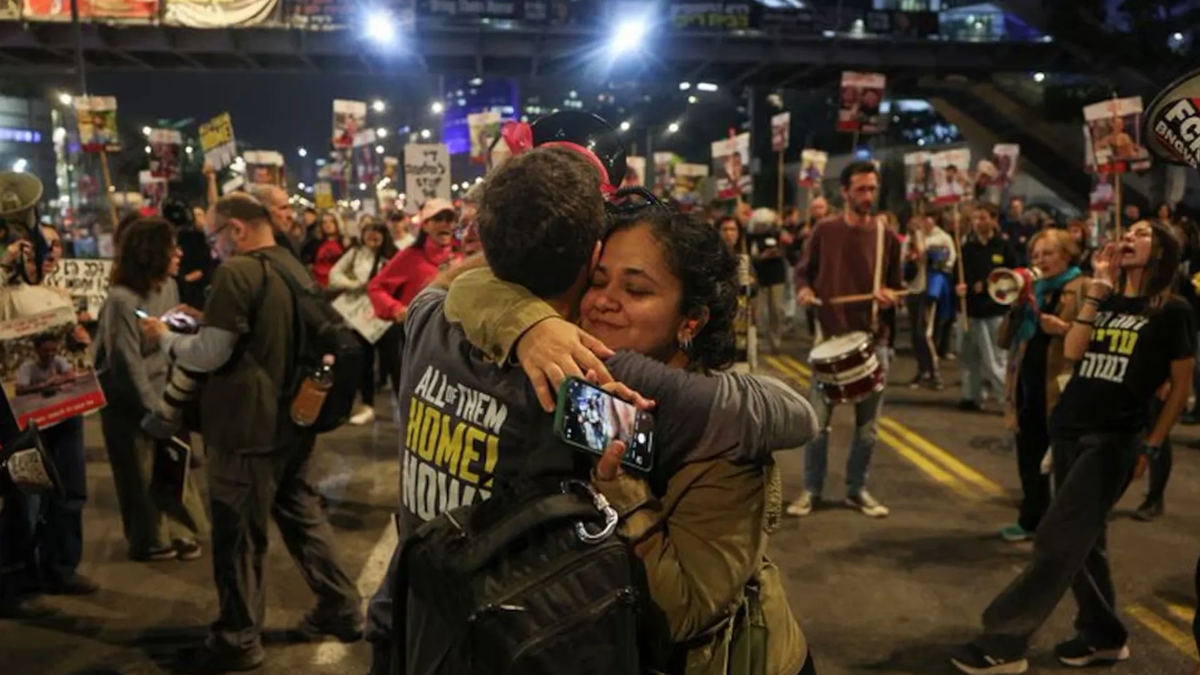Few places feel the pinch more than in La Federal, a community of about 800 people on the outskirts of Havana where one in four residents are unemployed, government data in 2022 shows.
On a dirt road about 100 meters where Cervantes lives, at least three men have left for Russia since June. Another had sold his house early, but did not travel, he said.
“I think we stayed like this, with one hand you can count those who stayed,” said the 42-year-old woman while contemplating the street from a small terrace where she displayed two flower pots reused after having served as toilets.
“Need is what’s forcing this,” he said.
Reuters tracked the stories of those four men, along with more than a dozen Cubans who were recruited to go to Russia from districts in and around Havana, ranging from a builder and merchant to a refinery or telephone company worker. .
A total of 11 of the men ended up flying to Russia while another seven declined at the last minute.
Interviews with many of the men, plus other friends and family, along with a mountain of WhatsApp messages, travel documents, photographs and phone numbers, corroborated their stories while painting the most detailed picture of how Cubans are flocking to prop up the Russian Army.
The Kremlin and the Russian Defense Ministry did not respond to questions about the recruitment of Cubans into the armed forces. The Cuban government also did not respond to queries on the matter for this article.
News of Cubans ending up in the Russian military made headlines this month when the government of Cuba, a former ally of Russia, arrested 17 people involved in a human trafficking ring that sought to bring residents to fight in Moscow.
Cuba has reiterated that “it is not part of the war conflict in Ukraine.”
The recruits identified by Reuters volunteered to go to Russia to work for the Army after proposals on social networks from a recruiter who identified herself as “Dayana.”
At La Federal, for example, all nine recruits identified by Reuters signed up to fight in the war. In Alamar, a community east of Havana, most of the five men signed up for non-combatant roles such as construction, packing supplies and logistics.
González, Cervantes’ husband, who spoke via video call from a Russian Military Base on the outskirts of the city of Tula, south of Moscow, said he was one of 119 Cubans training there. When he arrived in Russia he said that he had signed a contract translated into Spanish to work with the military.
“Everyone who came here knew what they were coming for. That they came for war,” he said, smiling in a military uniform while showing Reuters digital images of the camp.
González added that the 119 Cubans there were being trained to fight in the war, although it was not yet clear where they would be sent.
“I have several friends who are there in Ukraine, yes they are where bombs fall but not in confrontation with the Ukrainians,” he added. “Everything is fine here, when we go there, we go to a place where there is war,” she said.
Reuters was unable to contact any of the other men who joined the Army, although it confirmed via WhatsApp and photos that they had flown to Russia and two are now in Crimea.
Contacted for comment on the recruitment of Cubans into the Russian Army, Ukrainian Foreign Ministry spokesman Oleg Nikolenko said: “I can confirm that the Ukrainian embassy in Havana has approached the Cuban authorities about this matter.” .
Ukraine’s Defense Ministry did not respond to a request for comment.
A US State Department spokesperson said Washington was closely monitoring the situation.
“We are deeply concerned by reports alleging that young Cubans have been deceived and recruited to fight for Russia,” the spokesperson said.
DAYANA WITH CAMOUFLAGE CAP
The Cuban recruitment activity, identified by Reuters, began weeks after a decree in May issued by President Vladimir Putin that allowed foreigners to enlist in the contracted Army for a year to receive Russian citizenship through a fast-track process. , along with their spouses, children and parents.
In La Federal, news of the job in the Army began to spread in June, according to the neighbors interviewed. Offers to join were shared on Facebook, Instagram and WhatsApp, and the topic became the talk of the town, with “Dayana” named as the contact.
More than two dozen young people interviewed by Reuters in Havana spoke of the magnitude of the exodus.
Cristian Hernández, 24, smiled when asked how many people had left the town of La Federal. “Almost all of our friends have gone there,” he said.
Yoan Viondi, 23, who lives a few minutes by bike down the road from the main street, said he knew about 100 people in Villa María, a town that includes La Federal, who had been recruited for the Russian conflict since June. .
And he added that a friend sent him the WhatsApp contact of “Dayana”, a Cuban woman who, he said, bought plane tickets for future recruits. “Dayana” was also mentioned as a key contact by most of the recruits and family members Reuters spoke to.
Viondi wasted no time.
“Hello, good afternoon,” Viondi told “Dayana” in a July 21 statement, a message seen by Reuters. “Please I need information.”
“Dayana,” who appears on her chat icon as a dark-haired woman wearing a camouflage cap, responded with contract terms almost instantly, according to timestamps. The first line of the message reads: “It is a contract with the Russian army for which you receive citizenship.”
The contract was for one year and offered a signing bonus of 195,000 rubles followed by a monthly salary of 200,000 rubles, plus 15 days of vacation after the first six months of work.
Those terms are in line with those conveyed to Reuters by other recruits and their families.
“If they agree, you simply need to send (a copy of) their passport,” the message from “Dayana” read.
Within two minutes, Viondi had sent a digital copy of his passport. An hour later, “Dayana” responded in an audio message heard by Reuters: “Perfect, tomorrow I will be able to tell you what day you will travel,” she said.
Reuters was unable to contact “Dayana” for comment on the number used by Viondi and others, or to confirm her number and full name.
I WILL NOT DIE OF HUNGER
In the end, despite his initial enthusiasm, Viondi was eager to travel to Russia and cut off contact with Dayana. He stated that the people who signed at La Federal knew that they were going to fight.
“It’s hard to live here. Everyone said, ‘If I choose this, I won’t starve in Cuba,'” Viondi said. “But they knew where they were going. I knew exactly where I was going, too.”
Viondi added to Reuters that neither “Dayana” nor anyone else asked him to keep their interactions secret.
And he noted that he maintained contact with at least four friends who had signed contracts in Russia with the Army and that, to the extent possible, he knew that “they were fine.” Most, he said, are now in Ukraine.
Cuba is mired in its worst economic crisis in decades, with long lines even to purchase basic goods such as food, fuel and medicine, stimulating an exodus of Cubans who have traveled to the United States, Latin America and Europe since last year.
Alina González, president of a neighborhood committee in La Federal with the task of mobilizing support for the communist government, recalled the enthusiasm sparked by military work in Russia.
Many men took advantage of the opportunity in his neighborhood, he said, including his nephew Danilo.
“The one who lives there? He left with his wife and two children. That one over there, with his wife. And the mother of another one who lives down there left,” he added.
Roberto Saborí told Reuters that many of the men who left, including his son Yasmani, 30, had done so hastily, keeping their plans secret even from their families.
“I found out the same day he left because he never told me anything,” said the 53-year-old man, who lives on the corner next to González. And he added that his son had called him as he was preparing to board a flight from the resort city of Varadero to Moscow.
“He never told me anything.”
‘MOMMY, I CAN’T TAKE IT ANYMORE’
Cervantes, the seamstress at La Federal, remembers the desperation that her husband González, now in Russia, had felt months before she left. “Work, work, work,” is what she said about her life.
“One day he told me: ‘Mommy, I can’t take it anymore’. I’m going to Russia. He showed me the photocopy of his p
Source: Ambito




